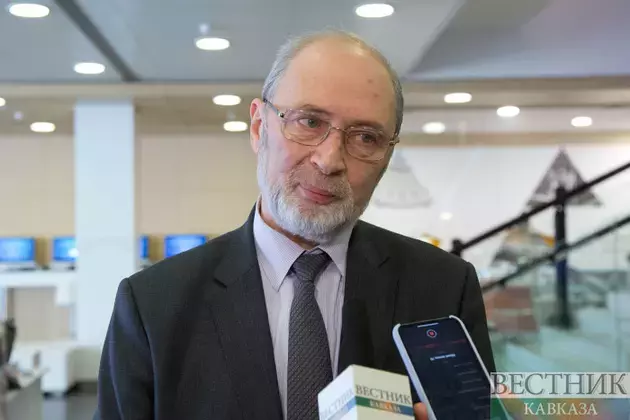The COP29 convention, which was established at the Earth Summit in 1992 to prevent dangerous human interference in the climate system, will take place in Azerbaijan soon.
We will tell you what Roman Vilfand, Scientific Director of the Hydrometeorological Center, thinks about the conference and the weather in the south of Russia.
- In November, the 29th session of the Conference of the Parties to the UN Framework Convention on Climate Change (COP29) will be held in Azerbaijan. What are your expectations from this forum?
- The main issue that will be discussed is what should be done to prevent rapid global warming. Many countries are working on this issue. For example, in our country, there is both a presidential decree and a government decision that a zero carbon balance should be achieved by 2060. That is, the amount of carbon dioxide CO2, which is the main greenhouse gas, released into the atmosphere must be equal to the amount of absorption. This requires forest plantations, efficient energy production, modernization of the mining industry, rational use of heat, which should not go into the atmosphere.
In addition to this, economic and political aspects of climate change will be discussed at COP29. Now carbon dioxide is an object of trade. If someone exceeds the threshold, one must pay for it. This is how greenhouse gas emissions can be reduced.
- How do you assess the significance of such events?
- All decisions made there are truly significant. Economic and political decisions are based on those scientific concepts that are developed, in our case, in Roshydromet and in other national services. I highly appreciate this event.
- Do you cooperate with colleagues from Azerbaijan?
- Yes. We have close contacts. The Deputy Minister of Ecology came here just recently. In addition to this, many of our Azerbaijani colleagues publish interesting studies in our journal, "Meteorological Research and Forecasts".
- Has global warming affected the climate in the North Caucasus? Will snow cover in the mountains form later than it did 10-20 years ago?
- Every year is different. However, in the Caucasus, perhaps one of the most important consequences of global warming is that the Kuban has become a river where floods are possible throughout the year. Previously, in the middle of the 20th century, floods occurred in the summer, and in the spring, when the snow melted. Now it rains so often, the weather is so warm that floods in the Kuban can happen in February.
In addition, the lower boundary of the ice is steadily rising. Therefore, the water runoff in the Caucasus mountains will gradually decrease.
- This year, the velvet season in the Kuban has lasted surprisingly long. Can we expect that the velvet season will last longer due to climate change and global warming?
- Due to anticyclonic weather in summer, the sun's rays reached the surface of the Black Sea most of the time. The seas and oceans, unlike land, are very good at absorbing solar energy. If the land warms up during the day, then at night it gives off all the heat to the atmosphere. The oceans, on the contrary, retain heat in their deeper layers.
There is a concept called the "active layer of the ocean", where the temperature rises due to turbulence and convection. This year, the sun warmed the water for a long time in May, June and even the first half of July due to the conditions. Therefore, the active layer of the ocean has become very hot. This means that during the period of decreasing temperatures in September and October, the water will give off this heat for a long time. Now the sea temperature will be around 22-23 degrees, and not only on the Black Sea coast of the Caucasus, but also in Crimea. Before that, the velvet season ended on September 15-20.






